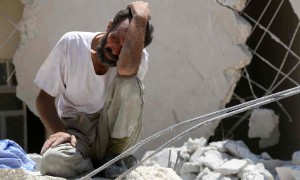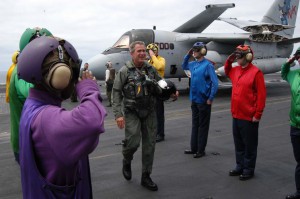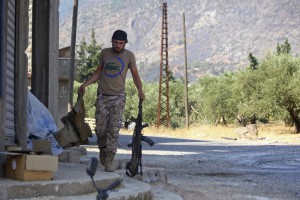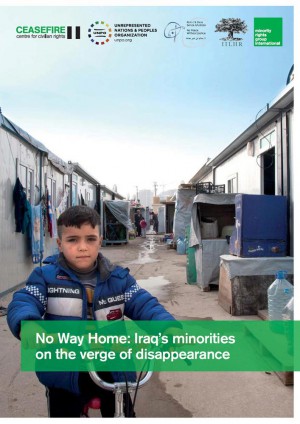Paul Rogers openDemocracy 11 November 2016.
The American election result can fruitfully be seen in a global context, as an expression of ‘revolts from the margins’ that arise in response to a failed economic system.
 The reasons for Donald Trump’s victory in the United States presidential election are already being intensively examined and discussed. Many more tens of thousands of words will be published in the coming weeks. The focus may be on American domestic politics, the way in which Washington and the media failed to predict the result, or on themes of gender, race, and class.
The reasons for Donald Trump’s victory in the United States presidential election are already being intensively examined and discussed. Many more tens of thousands of words will be published in the coming weeks. The focus may be on American domestic politics, the way in which Washington and the media failed to predict the result, or on themes of gender, race, and class.
An important aspect is the experience of white males in low-paid work, and more generally the fact that a huge minority of blue-collar Americans have had virtually no increase in real wages in more than a decade. This is in contrast to many white-collar jobs, and far more to the wealthiest fifth of the population.
Even more interesting though, and probably less discussed, is whether Trump is a symptom of a much wider global trend of ‘revolts from the margins‘. In the United States, this perspective might easily have focused to even greater effect on Bernie Sanders in the event he had won the Democrat ticket.
For a decade and a half – almost from the start of openDemocracy – a consistent (and hopefully not too boring) element in these columns has been the view that a combination of socio-economic divisions and environmental limits will be the defining determinants of international insecurity in the coming decades, unless both trends can be reversed (see “The global crisis: seeing it whole“, 1 May 2014).
Edwin Brooks’s dystopic vision from the early 1970s of a “crowded, glowering planet of massive inequalities of wealth, buttressed by stark force yet endlessly threatened by desperate men in the global ghettoes” was seen as the negative future in which determined and violent military operations would become the instrument of that “buttressing by stark force” (see “A tale of two towns”, 21 June 2007).
The origin and nature of those possible revolts was examined in an analysis that pre-dated 9/11. The question now is whether it relates in any way to the success of Trump’s mission to lead the United States.
The analysis from the late 1990s suggested:
“What should be expected is that new social movements will develop that are essentially anti-elite in nature and draw their support from people on the margins. In different contexts and circumstances they may have the roots in political ideologies, religious beliefs, ethnic, nationalist or cultural identities, or a complex combination of several of these. They may be focussed on individuals or groups but the most common feature is an opposition to existing centres of power. They may be sub-state groups directed at the elites in their own state or foreign interests, or they may hold power in states in the South, and will no doubt be labelled as rogue states as they direct their responses towards the North. What can be said is that, on present trends, anti-elite action will be a core feature of the next 30 years – not so much a clash of civilisations, more an age of insurgencies.”
The movement matrix
How does that look after fifteen years of the post-9/11 world, and does it relate to Trump? There are many and varied examples of social movements, with diverse origins. Some are involved in brutally violent revolts. These include the multiple Islamist outgrowths, from ISIS to al-Qaida and Boko Haram to al-Shabaab. Few analysts doubt that these groups are persistently sustained by perceptions of gross marginalisation, especially within the Middle East and north Africa, but also extending to numerous diasporas. Among tens of millions of educated young people with poor life prospects, only a very few may find extreme movements appealing. But that might still amount to many thousands of potential followers willing to give their lives, with effective and self-reinforcing results (see “Al-Qaida, and a global revolt“, 22 May 2014).
There are also movements with a political focus, often with a military arm: neo-Maoist Naxalites in India, Sendero Luminoso and others in Latin America, Nepal and the Philippines, socialist movements such as the Zapatistas in southern Mexico, as well as numerous movements with strong ethnic and nationalistic bases.
In parallel with these it is reasonable to argue that the revolts from the margins extend to a wide political dimension. These may belong on the left, in the form of Podemos, Syriza, the Corbynistas and others; and on the right, encompassing movements with a very strong anti-migrant stance, some of which have acquired power, as in Hungary. Fear of migration is strong and is alighted on by many politicians in Europe and beyond, notably Marine le Pen in France, Geert Wilders in the Netherlands, and Nigel Farage in the UK.
The climate effect
These two levels – violent revolts from the margins and less violent political movements – are linked. At each, there is disgust at an economic system that is not producing a sufficient sharing, a fault that has been greatly exacerbated by the effects of the 2007-08 financial crash. The feeling is reinforced by a pervasive perception that an entrenched elite remains immune from these effects.
Some of this sentiment is then captured by leaders who themselves come precisely from within those elites. The billionaire property developer, Donald Trump, and the privately-educated and wealthy former city trader, Nigel Farage, are leading examples. Even as they stretch credibility in their positioning, it must be recognised that they still manage to gain appeal.
The failings of the neoliberal economic system that developed apace from the late 1970s are even now seldom recognised as being at the root of so many of the current convulsions. In fact, this view meets sustained resistance from within business and financial communities, including exchequers and banks. Few politicians recognise this, with Jeremy Corbyn an example, but he is still very much the exception.
Trump should therefore be seen as yet another manifestation of a global trend. But he adds a very unwelcome factor: his resolute denial of the reality of climate change, and his accompanying desire to boost coal and oil. If that attitude prevails and the world’s largest economy gives up on a low-carbon future, other states will quietly follow the lead. Much of the limited progress made since the Paris summit will be lost.
People may certainly worry about Donald Trump’s finger being on the nuclear button, but that still represents a small risk of an utter catastrophe. To have the United States in the grip of a climate denier for at least four years carries a much greater risk, as an actual development with damaging consequences that will prove very difficult to reverse.







